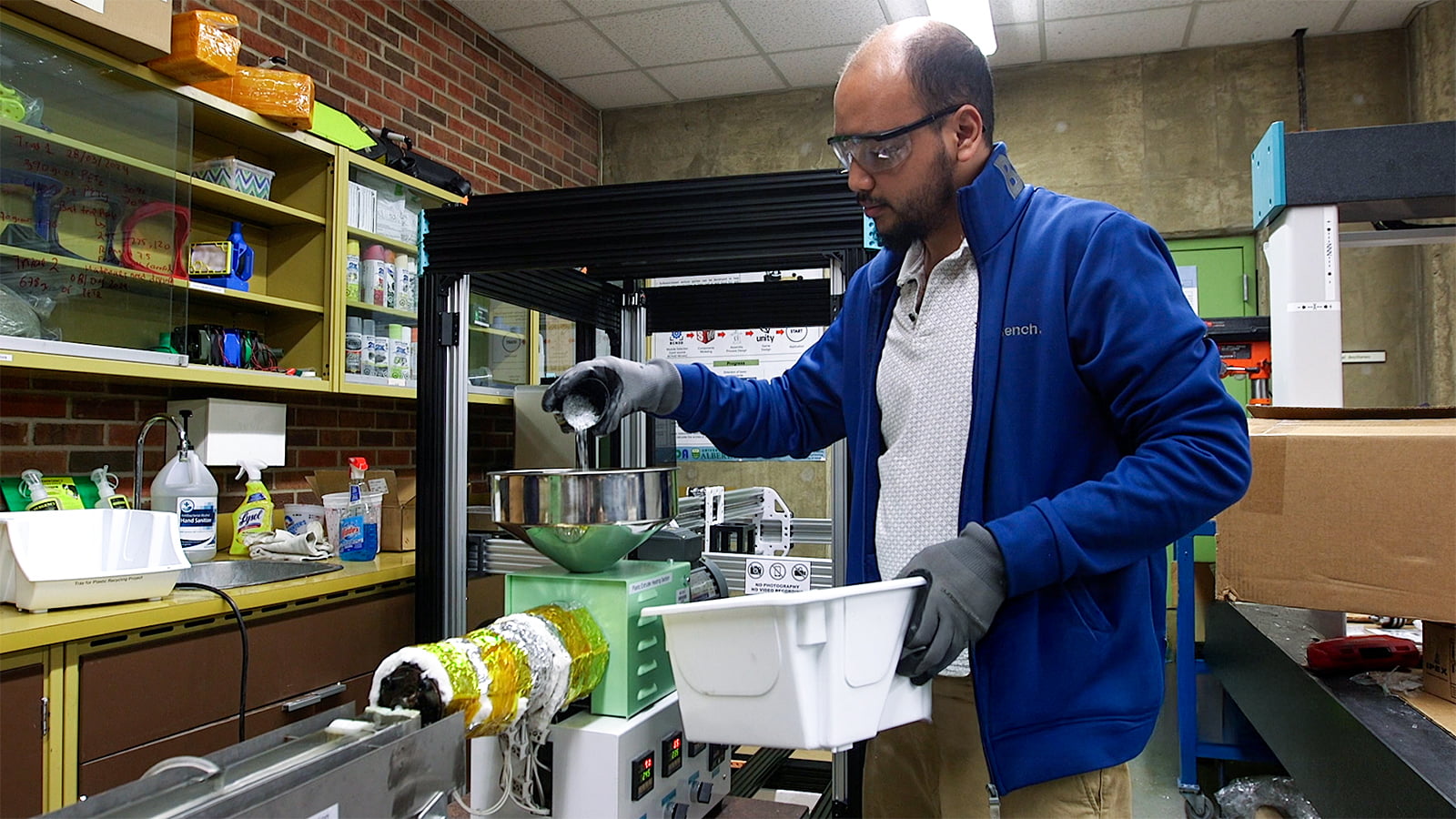Science
U of A Spinoff Competes in NASA’s $3 Million Space Waste Challenge

NASA is addressing the challenge of space waste as it prepares for the upcoming Artemis II mission to the moon. The agency aims to implement effective recycling solutions to manage waste generated by astronauts, who produce an average of 125 kilograms of waste each month. In response, NASA initiated the LunaRecycle Challenge, an international competition focused on developing innovative recycling systems that can reduce non-metabolic waste and enhance the sustainability of long-term lunar missions.
The competition attracted 1,200 applications from 86 countries, with NASA selecting Waste Parrot, a spinoff company from the University of Alberta, along with 17 other finalists, to advance to the final phase. The project is spearheaded by AI researcher Junaid Tahir and principal investigator Rafiq Ahmad from the Department of Mechanical Engineering’s Smart and Sustainable Manufacturing Systems (SMART) Lab. This lab is dedicated to bridging the gap between research and practical applications through digital transformation in various industries.
Waste Parrot has developed an autonomous, modular recycling model that utilizes artificial intelligence, a robotic arm, and drones. This innovative technology is designed to identify and sort space waste into different categories. The shredded materials will then be processed through a 3D printer to create essential tools, gear, and hardware required for moon missions. Importantly, the company also aims to apply its recycling advancements to improve waste management on Earth.
As they progress, Waste Parrot will begin the second phase of the LunaRecycle Challenge, which involves refining and scaling up their prototype. The team plans to conduct tests in harsh northern conditions, simulating the lunar environment. In early 2026, the winning team of the LunaRecycle Challenge will be awarded $3 million and will see their solution deployed in space, marking a significant milestone in both space exploration and sustainability efforts.
This initiative not only highlights the importance of waste management in space missions but also underscores the potential for innovative technologies to address environmental issues on our planet. As the competition unfolds, Waste Parrot’s efforts may pave the way for a cleaner and more sustainable future—both in space and on Earth.
-

 Science3 months ago
Science3 months agoToyoake City Proposes Daily Two-Hour Smartphone Use Limit
-

 Top Stories3 months ago
Top Stories3 months agoPedestrian Fatally Injured in Esquimalt Collision on August 14
-

 Health3 months ago
Health3 months agoB.C. Review Reveals Urgent Need for Rare-Disease Drug Reforms
-

 Technology3 months ago
Technology3 months agoDark Adventure Game “Bye Sweet Carole” Set for October Release
-

 World3 months ago
World3 months agoJimmy Lai’s Defense Challenges Charges Under National Security Law
-

 Lifestyle3 months ago
Lifestyle3 months agoVictoria’s Pop-Up Shop Shines Light on B.C.’s Wolf Cull
-

 Technology3 months ago
Technology3 months agoKonami Revives Iconic Metal Gear Solid Delta Ahead of Release
-

 Technology3 months ago
Technology3 months agoApple Expands Self-Service Repair Program to Canada
-

 Technology3 months ago
Technology3 months agoSnapmaker U1 Color 3D Printer Redefines Speed and Sustainability
-

 Technology3 months ago
Technology3 months agoAION Folding Knife: Redefining EDC Design with Premium Materials
-

 Business3 months ago
Business3 months agoGordon Murray Automotive Unveils S1 LM and Le Mans GTR at Monterey
-

 Technology3 months ago
Technology3 months agoSolve Today’s Wordle Challenge: Hints and Answer for August 19









